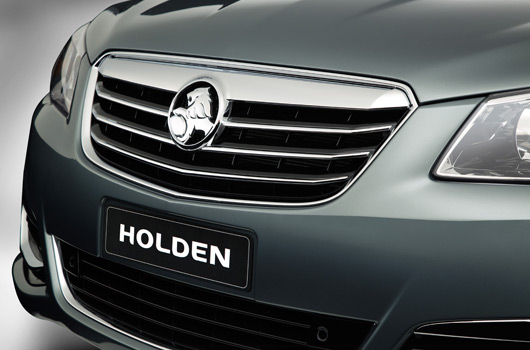
Holden will close its local manufacturing operations in 2016 according to the ABC. The national broadcaster says senior government ministers have confirmed their belief that General Motors, Holden’s parent company, has already made the decision to stop making cars in Australia.
For their part Holden is not making any comment and says its unlikely to do so until at least next week after it has faced the Government’s Productivity Commission. One of the issues concerning the future of Holden is the uncertainty over Federal Government subsidies, which it claims it needs to keep local manufacturing viable.
The elephant in the room seems to be that local carmakers—Holden, Ford and Toyota—aren’t making cars that people want to buy. A criticism aimed more at Holden and Ford, rather than Toyota, which is comfortably the country’s best selling manufacturer.
Local car making peaked in 1970 when around 475,000 vehicles were made. By 1980 that number had dropped to 360,000. In recent years the industry last peaked in 2005 when almost 390,000 cars rolled off the line. By 2011 that number had plummeted by over 40% to just 224,000.
Outwardly at least, it would seem Holden and Ford have been too slow to react to consumer demand and no amount of government handouts can make the decision to build cars that people actually want to buy. Cracks in sales numbers might be papered over by models like the VF Commodore, but the overwhelming trend doesn’t lie. Buyers no longer want Commodores and Falcons. Couple that with the fact that no sustainable export markets can be found then it’s a fairly bleak outlook for Australia’s once iconic family sedans.
Ford has already announced it will stop making cars in Australia by 2016. We expect Holden will follow suit. And then it becomes a matter of time until Toyota does likewise.
Unless something unforeseen happens it will be a sad day when local car manufacturing ends in Australia. It’s a business sector that has, at times, been one of great pride for Australians. But not any more. Sales figures don’t lie.
[Source: ABC]
8 replies on “Hope our luck doesn’t end now”
I feel for those who’s jobs are on the line, but then again a hell of a lot of public servants jobs are at risk at the moment and the collective public don’t seem to care so why should a car maker’s jobs be any different.
Will be interesting to see the big change when Holden goes under just as Ford did. All of a sudden it becomes an ‘exciting opportunity’ to bring in new models from the US. I must say it’s hard to mourn the Falcon when the new mustang is now coming ing. Will be the same when people start seeing Camaros on the road.
Properly stated for once, rather than the fluffy version that other car sites and news sites alike ramble around. Very well said.
More detail on this story has been provided by Go Auto: http://www.goauto.com.au/mellor/mellor.nsf/story2/5DB455857BFA3D04CA257C380078C65B
The local makers aren’t seling as many cars locally as they used to, but lets not forget that Commodore variants last month sold more units than the combined totals of both Mercedes-Benz and BMW passenger cars. So to say that people don’t want to buy locally made cars any more isn’t true (and the VF Commodore is a desirable thing if you avoid the base engine).
Perhaps a bigger issue is the export opportunities that dried up when the dollar strengthened.
@revhed,
If you take away government purchases ie cop cars etc, what will be the real public figure.
@Revhed
Yes, you’re point about the dollar has merit. However, pointing out that it’s a good thing the Commodore is selling more than BMW and Mercedes combined simply highlights how far Holden has fallen. As a volume seller Holden/Commodore should be miles ahead of two prestige German brands.
Of course there are some people that want to buy locally made cars, but clearly there’s not enough. I agree the value of the VF is very good with all the bells and whistles included these days. And I’m sure it’s the best car Holden has ever made.
Being good value and an excellent product still doesn’t appear to make a large family sedan as attractive to buy as mid-size hatchbacks or SUVs. Government subsidies or persuasive arguments on the car’s quality aren’t likely to change consumer demand.
@Liam
I was just trying to put the Holden’s sales figures in context for readers of this site who might have otherwise assumed that sales had all but dried up based on your comments (the Commodore is the 5th largest seller overall, the Territory the largest selling large SUV).
Is there enough demand for these cars to justify local production? Almost certainly not.
If sales increased significantly would there be enough demand to justify local production? Almost certainly not without a big export contract.
Note also that Toyota sells less locally produced cars here than Holden. The difference is that they ship far more cars to the UAE.
Yep, fair enough. And good info on Toyota too, thank you.